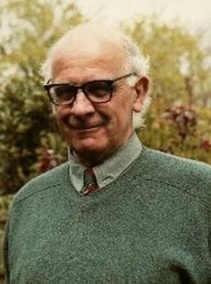- Cosmological Redshifts and the Law of Corresponding States (1994) [Updated 1 decade ago]
- The Dynamics of Armageddon (1988) [Updated 1 decade ago]
- Does Neo-Lorentzian Relativity Exist? (1980) [Updated 8 years ago]
- Concerning the Equivalence of Lorentz's and Einstein's theories (1978) [Updated 1 decade ago]
- Cosmological Redshifts and the Law of Corresponding States (1994) [Updated 1 decade ago]
"Those who are attached, as they may be with the greatest justice, to every doctrine which is stamped with the Newtonian approbation, will probably be disposed to bestow on these considerations so much the more of their attention as they appear to coincide more readily with Newton's opinion". - Thomas Young, 1802.
In the past, it evidently needed a physicist of uncommon politeness to confront and overcome that tendency with the breed to sanctify its great and its corpuscular. Physicists of course do not readily perceive themselves as being on probation. And yet, as provides of truth and the means to survive, they are usually so perceived in the public eye and do not always give a good account of themselves in the presence of scientists from other disciplines. As far back as the end of the nineteenth century, for example, there were distinguished authorities upholding a physical timescale for an obvious astronomical system (the Sun and Solar system) which could not be sustained in the face of the much preferred evidence from the ground for long term geological and biological calm. Admittedly this physical timescale was quite an advance on the position taken up during the middle years of the nineteenth century when the biblical timescale, requiring short term astronomical effects of a catastrophic nature, also proved disastrously wanting in the presence of geological and biological uniformitarianism. However, the fact that the exponents of a science which claimed its direct descent from Copernicus, Galileo and Newton could prove themselves so seriously mistaken in the face of demonstrable natural facts did not fail to have its effect; and by the beginning of the twentieth century, it is clear that physics and, to a greater extent, astrophysics were being conducted in an atmosphere of very low public and academic esteem. These conditions, which were not necessarily favourable to the maintenance of the highest intellectual standards, continued to the end of the Second World War, by which time some of the achievements of physical science had been such as to restore the discipline's lost esteem. Now, however, as the twentieth century itself is drawing to a close, this esteem is seen as having been built on fear as much as on respect and it is again an interesting question whether a new generation of physicists will repeat the failings of its predecessors and seek to force the cosmos into a preconceived mould.
- The Dynamics of Armageddon (1988) [Updated 1 decade ago]
Reprinted in Zysman, Milton and Clark Whelton (eds.) (1990). Catastrophism 2000: A Sourcebook for the Conference Reconsidering Velikovsky, Toronto, Canada, pp. 5-16.
- Does Neo-Lorentzian Relativity Exist?
(1980) [Updated 8 years ago]
- "Does Neo-Lorentzian Relativity Exist?", pp. 467-468
- "Additional Comments on Lorentzian Theory," pp. 470-472
- Prokhovnik: Reply to Clube's further comments, pp. 472-473
- Second reply to Prokhovnik, pp. 473-474
- Reply to Editor, pp. 480-481
- Concerning the Equivalence of Lorentz's and Einstein's theories
(1978) [Updated 1 decade ago]
Reviewer's comment, p. 497; Author's reply, p. 498


